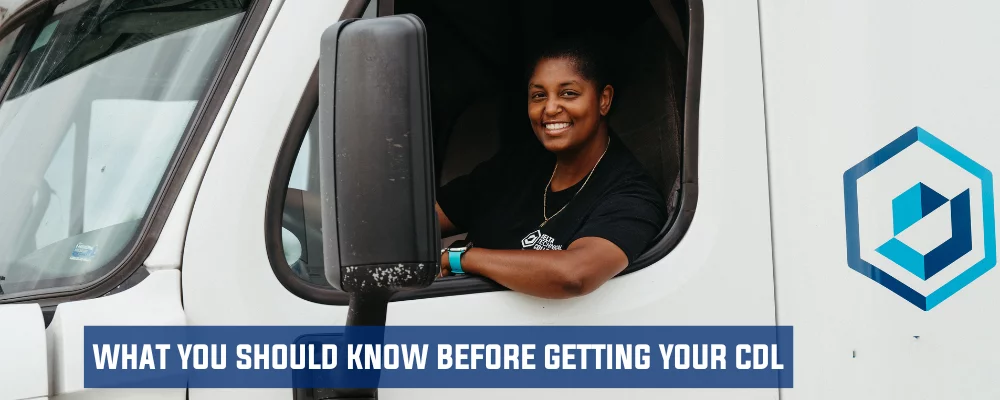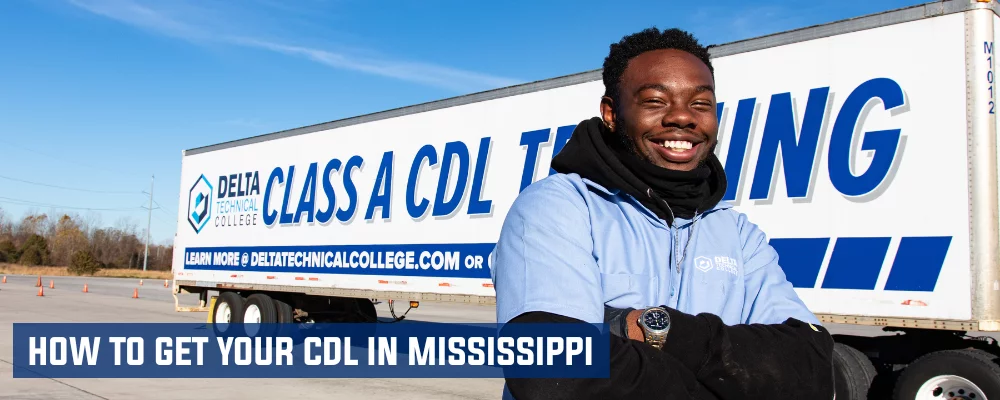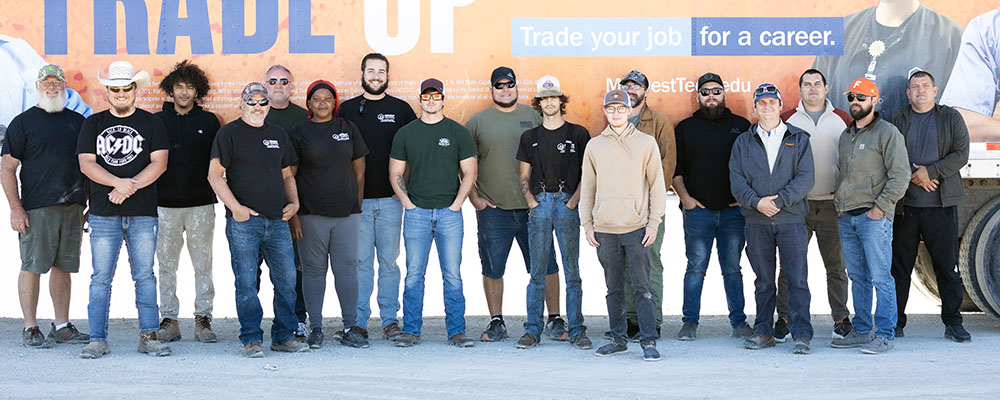In today’s economy, there is demand for commercial truck and bus drivers, according to the Bureau of Labor Statistics. Driving a commercial vehicle requires specialized knowledge and experience as well as a Commercial Driver’s License, or CDL.
The two most popular classifications of CDL are CDL-A and CDL-B, but many people aren’t familiar with the difference between class A and class B CDL. As you explore your options in the transportation industry, this article can help you understand the CDL class differences so you can make an informed decision on which route best supports your career goals.
What is a CDL-A?
A key difference between CDL-A and B is in regards to vehicle weight. According to federal standards, if your vehicle weighs over 26,000 lbs (excluding trailers), you need a Commercial Drivers License (or CDL) to drive it. CDL-A training is what most people are referring to when they talk about truck driving school.A CDL-A is required if your trailer weighs over 10,000 lbs. Most commercial trailers meet this weight requirement, including tractor trailers, truck and trailer combinations, double and triple trailers, tractor trailer buses, tanker vehicles, livestock carriers, and flatbeds.Combination vehicles (or a truck pulling a trailer) almost always meet the weight requirements for CDL-A. These vehicles and trailers often require greater training and skill to maneuver.The CDL-A credential is the most versatile certification for careers across the transportation industry. Class A CDL trucks and vehicles include the following types of drivers and operators:
- Heavy truck drivers
- Over-the-road (OTR) drivers
- Semi-truck drivers
- Tractor trailer operators
What is a CDL-B?
The Class B CDL is a more limited certification, qualifying the driver for jobs that specifically require operating lighter weight commercial vehicles. If you only drive straight trucks, box trucks (like delivery trucks), large buses, or dump trucks with small trailers, you may only need a CDL-B.These driving jobs are typically more limited in geographical area and good for those who enjoy commercial driving, but also prefer to stay close to home.
Interested in Learning More About Truck Driving?
Fill out the form below to receive info about our career training programs.
Train to Get your CDL Class A at Delta Technical College
Delta Technical College offers two truck driver training options:
- CDL Training Course is a 20-day course that teaches you skills for entry-level employment as a licensed CDL-A truck driver. Through hands-on experience and classroom theory, the CDL Training Course teaches you truck driving procedures and techniques through classroom instruction and behind-the-wheel experience by driving large commercial vehicles on the driving range.
- Professional Truck Driving Program is a 20-week program that covers a wider range of topics beyond basic commercial driving skills. In the classroom, instructors teach you relevant transportation topics including driving safety, state CDL requirements, how to operate air brakes, and more. On the range, you will learn how to operate and drive a commercial vehicle, including parking, backing, docking, managing speed and space relations. You’ll also learn how to handle driving hazards, including various driving and weather conditions. Training includes trip planning, hazardous material training, loading and unloading your trailer, forklift operations, truck maintenance, weigh stations, life on the road, and more.
Once you complete your training, you’ll be prepared to pass the state CDL written and driving exams. Graduates will be eligible for entry-level employment as a licensed CDL-A truck driver, and qualified for a variety of careers within the transportation industry.The CDL Training Course and Professional Truck Driving Program are offered at both the Horn Lake and Ridgeland, MS campuses. To learn more, schedule a tour!
SOURCES
- https://www.bls.gov/ooh/transportation-and-material-moving/heavy-and-tractor-trailer-truck-drivers.htm
- https://www.fmcsa.dot.gov/registration/commercial-drivers-license/drivers
- https://www.onetonline.org/link/summary/53-3032.00
- https://www.deltatechnicalcollege.com/programs/cdl-training/
- https://www.deltatechnicalcollege.com/programs/professional-truck-driver-training/



